Surah Saad
Surah Saad is the 38th Chapter of the Quran with 88 Verses. surah al saad is the name of the eighteenth letter in the Arabic letters in order. As indicated by the conventional Islamic account, Saad was shipped off to Muhammad by Allah while he was adapting to dismissal from his clan, the Quraysh.
As will be made sense of underneath, as per a few customs this surah saad pdf was sent down in the period when the Blessed Prophet had begun calling individuals transparently to Islam in Makkah, and this had caused extraordinary caution among the heads of the Quraish. Assuming this be valid, its time of disclosure would be about the fourth year of the Prophethood. As indicated by a few different customs, it was sent down after Hazrat Umar's embracing Islam, and this occurred, as is notable, after the relocation to Habash. One more chain of customs shows that the occasion which occasioned the disclosure of this Surah occurred during the last sickness of Abu Talib. Assuming this be right, the time of its disclosure would be the tenth or eleventh year of the Prophethood.
Surah Saad Translation
surah saad urdu translation is the best option for those who want to read this Surah in your own language. surah saad english translation explains about the history of the Surah:
At the point when Abu Talib became sick, and the Quraish bosses realized that his end was close, they held discussions and chose to move toward the old boss with the solicitation that he ought to tackle the question among them and his nephew. For they expected that on the off chance that Abu Talib kicked the bucket and, they oppressed Muhammad (upon whom be Allah's tranquility) to an unforgiving treatment, after his passing, the Middle Easterners would insult them, saying, "They feared the old boss as long as he lived now that he is dead they have begun abusing his nephew." Somewhere around 25 of the Quraish bosses including Abu Jahl, Abu Sufyan, Umayyah container Khalaf, as receptacle Wail, Aswad canister al-Muttalib, 'Uqbah receptacle Abi Muait, Utbah and Shaibah went to Abu Talib. To begin with, they put before him their grumblings against the Sacred Prophet to the surprise of no one, then, at that point, said,
"We have come to introduce before you a simple solicitation and it is this: allow your nephew to pass on us to our religion, and we will pass on him to his. He might adore whomever he might please: we will not hold him up in this; be that as it may, he shouldn't censor our divine beings, and shouldn't attempt to drive us to surrender to them. If it's not too much trouble, advise him to make terms with us on this condition". Abu Talib called the Blessed Prophet and said, "Dear nephew, these individuals of your clan have come to me with a solicitation. They believe that you should concur with them on a simple matter to stop your question with them.
" Then, at that point, he informed him regarding the solicitation of the heads of the Quraish. The Blessed Prophet answered, "Dear uncle: I will demand them to concur upon a thing which, on the off chance that they acknowledge, will empower them to vanquish the entire of Arabia and subject the non-Bedouin world to their mastery. " It was first puzzling to Hear this individual; they didn't have the foggiest idea how they ought to turn down such a proposition. Then, after they had considered the matter, they answered: " You discuss a single word: we are ready to rehash ten others like it, yet kindly let us know it." The Sacred Prophet said: La ilaha sick Allah. At this, they got up all together and left the spot getting out whatever Allah had described in the underlying piece of this Surah.
Ibn Sad in his Tabaqat has related this occasion similarly as referred to above, be that as it may, as per him, this didn't occur during Abu Talib's last sickness yet when the Blessed Prophet had begun teaching Islam straightforwardly, and the fresh insight about the transformation of one individual or the other was being heard practically day to day in Makkah. In those days the Quraish bosses had driven a few delegations to Abu Talib and had requested that he stop Muhammad (upon whom be Allah's tranquility and gifts) from teaching his message, and it was with one of those nominations that this discussion had occurred.
Surah Sad
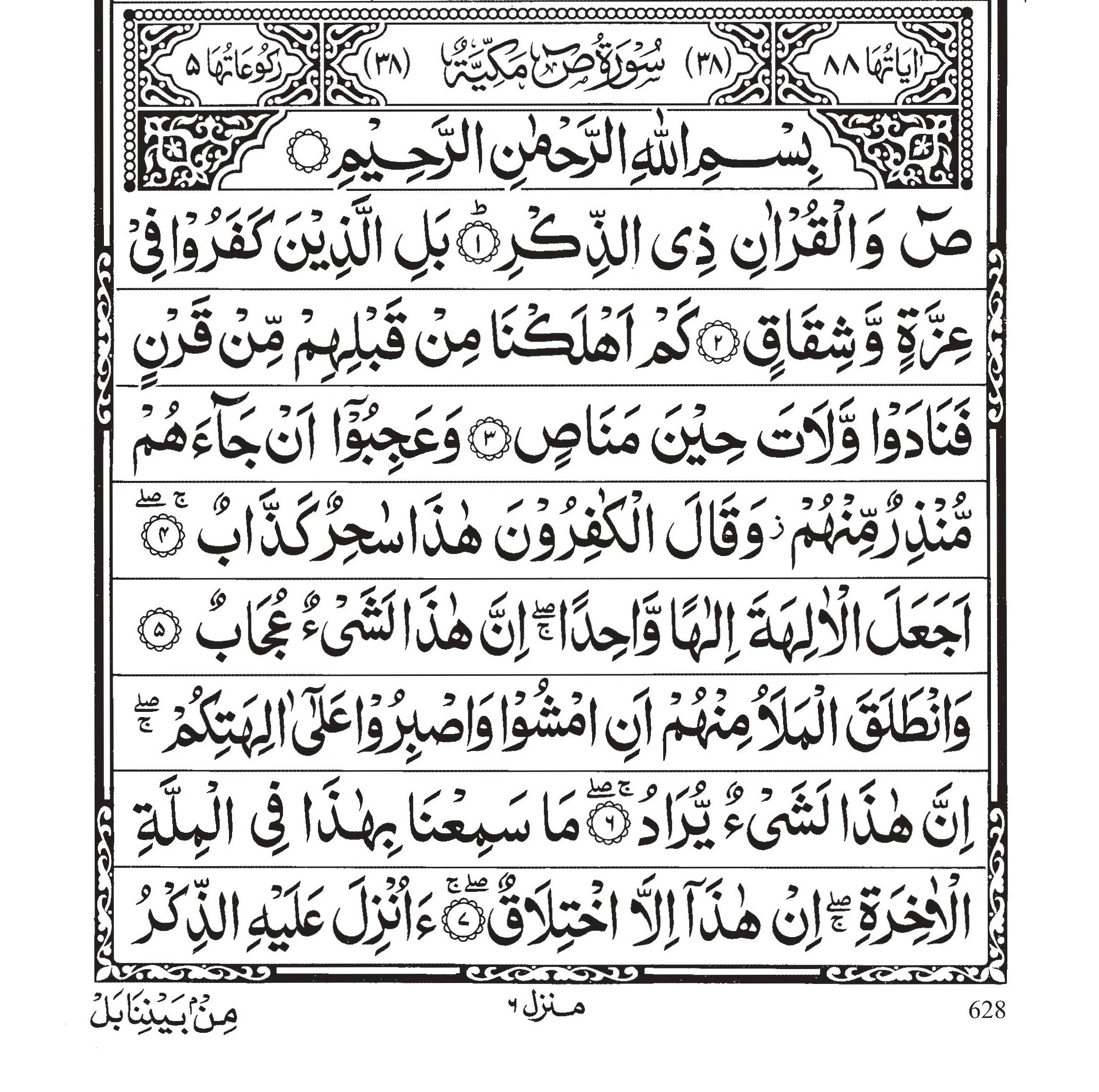
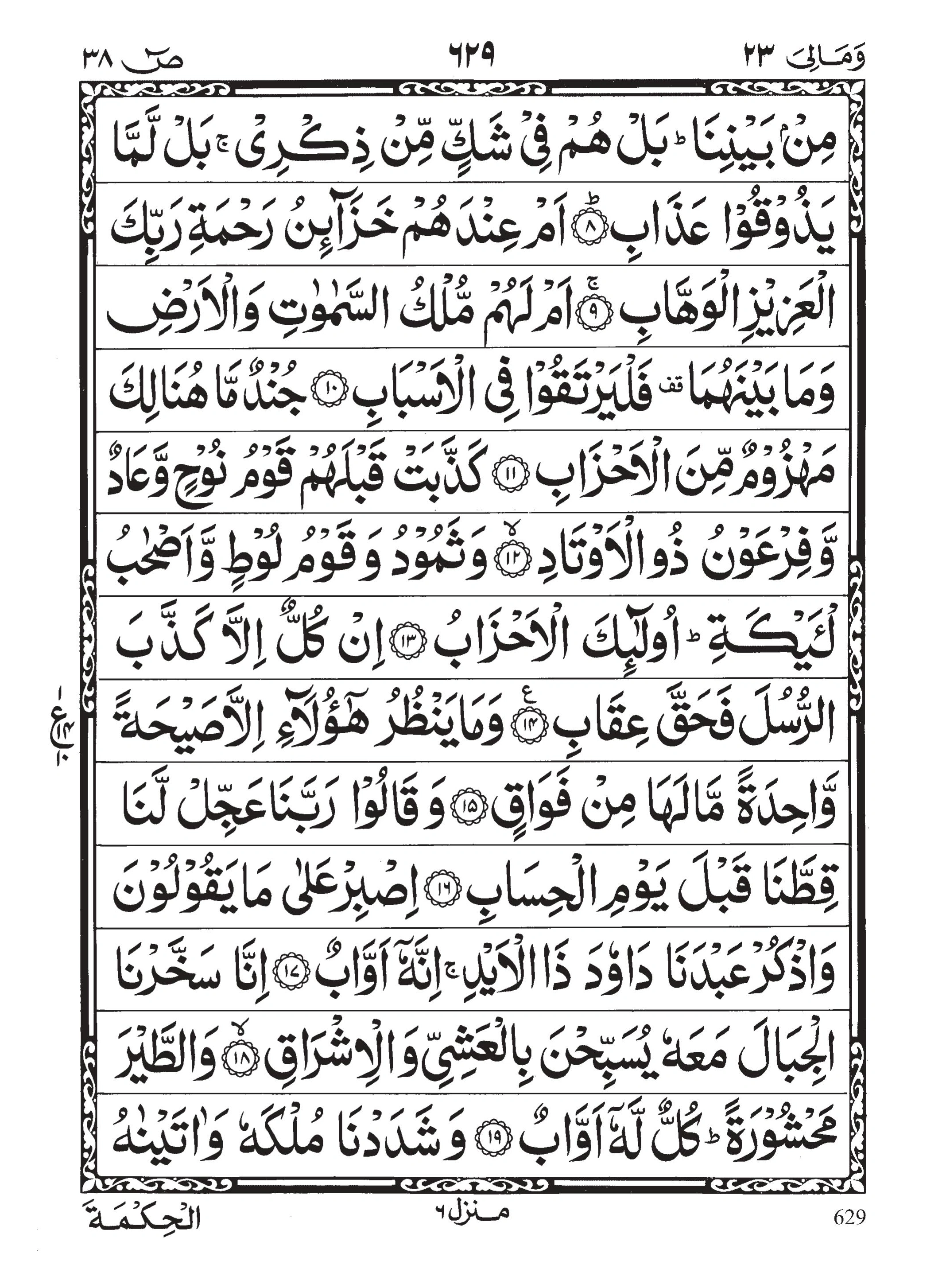
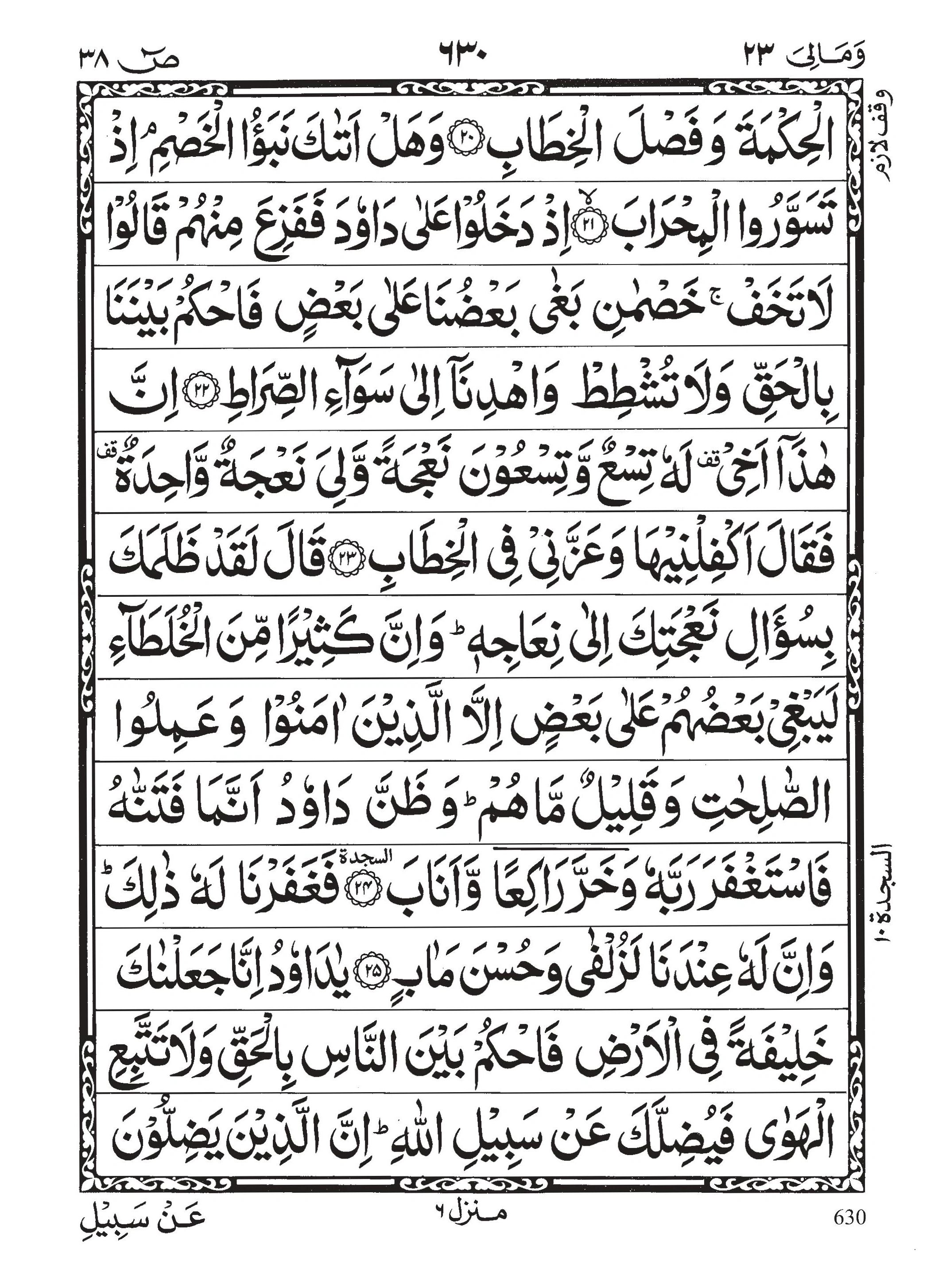
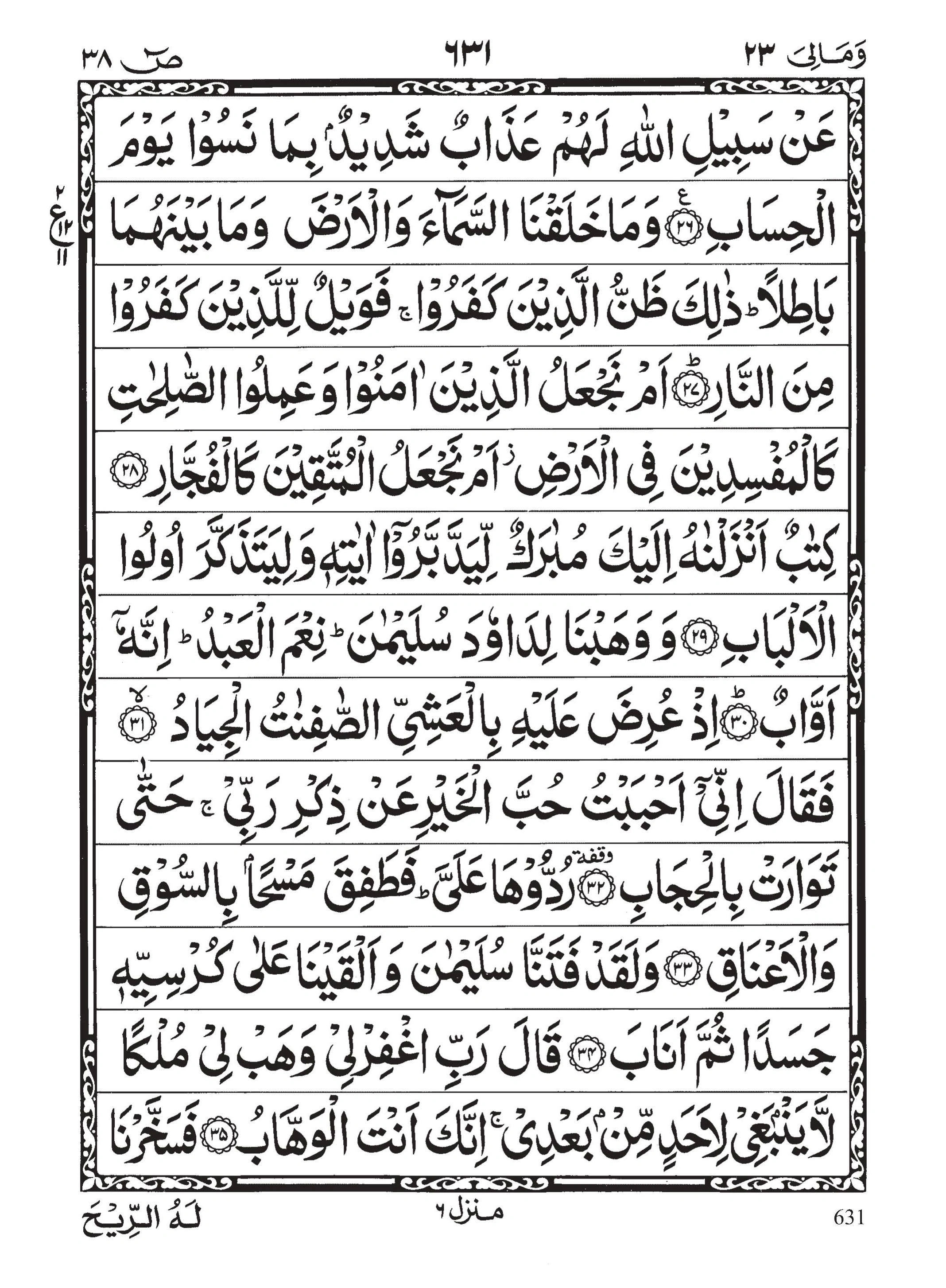
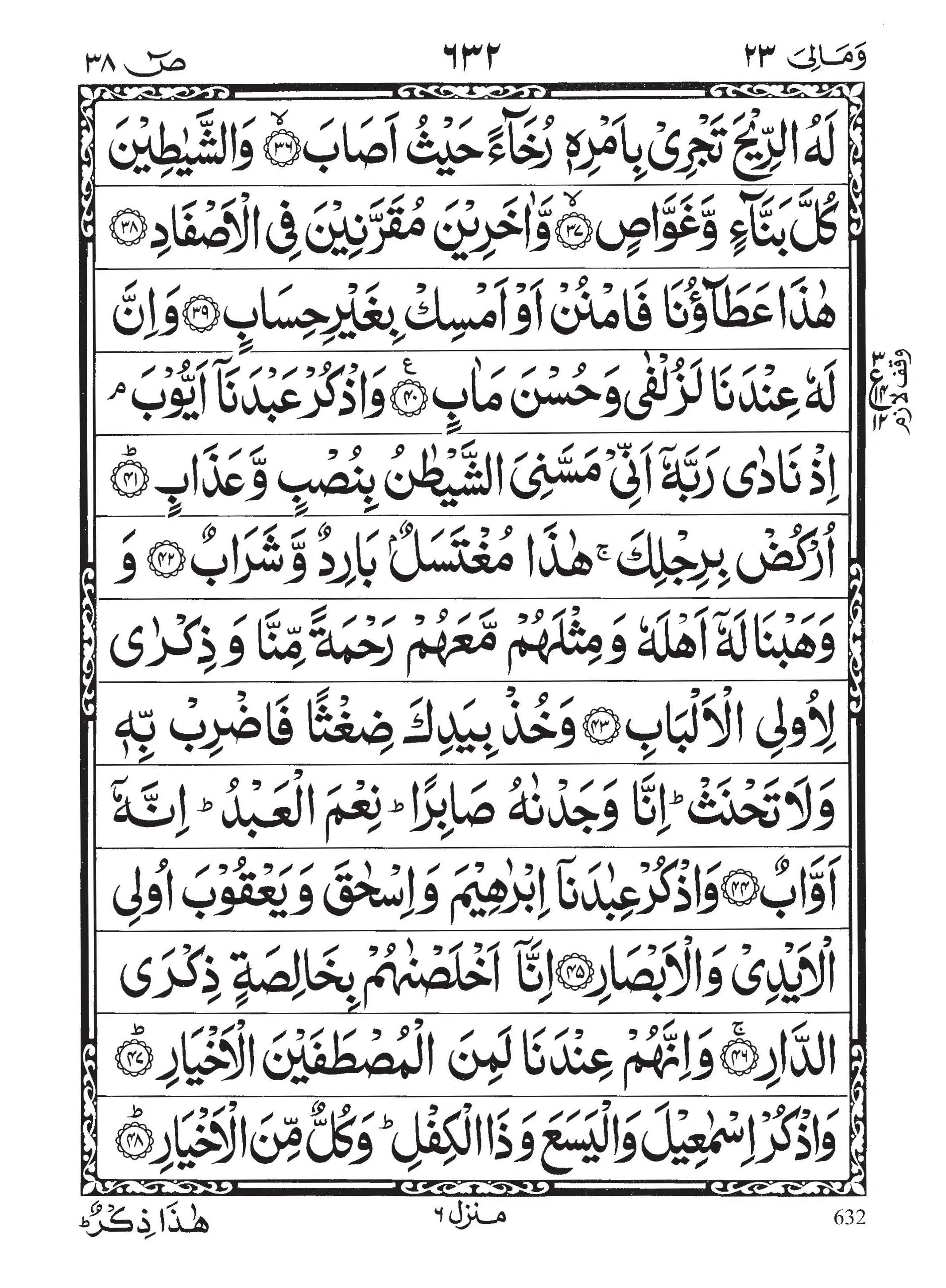
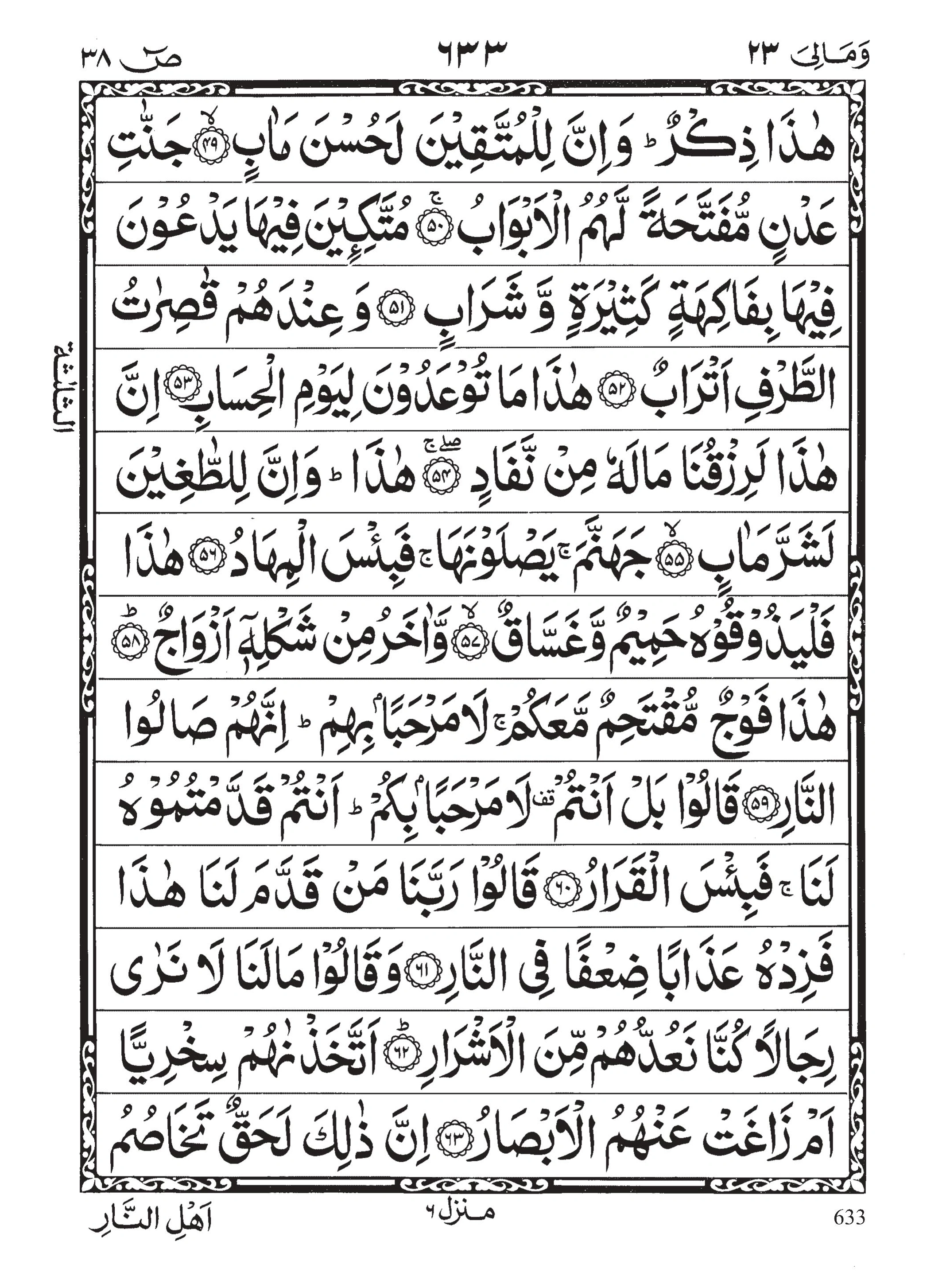
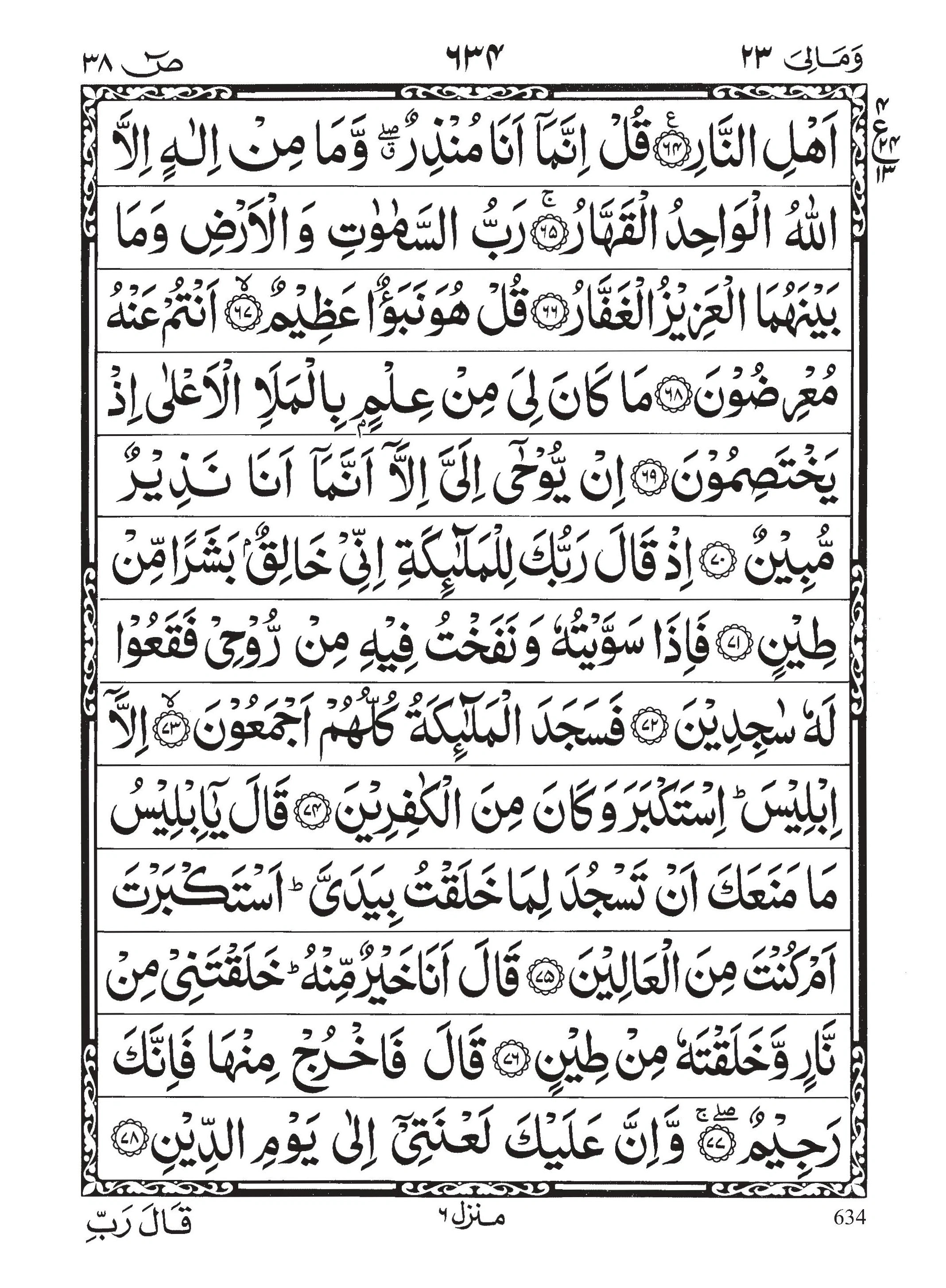
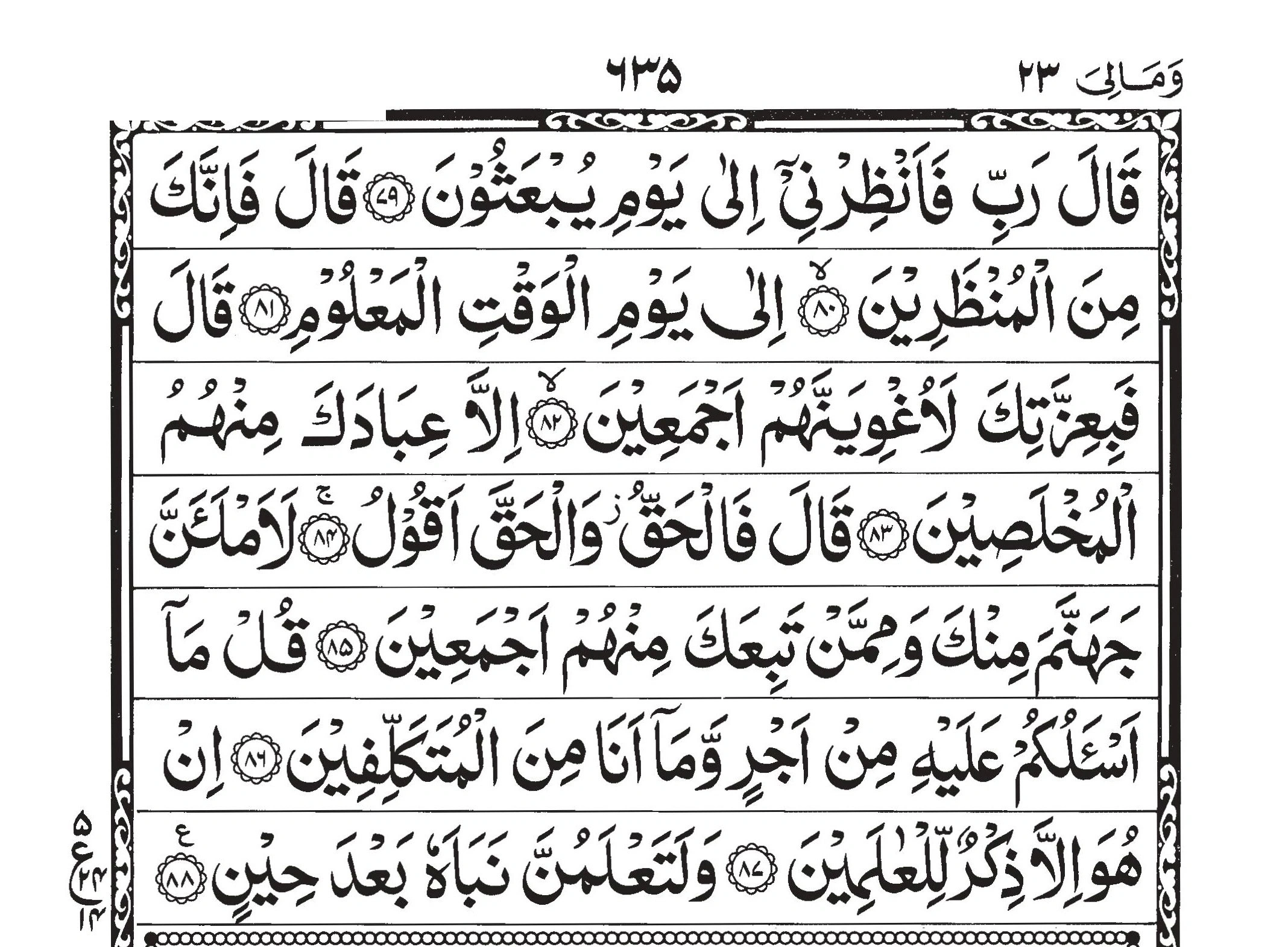
Zamakhshari, Razi, Nisaburi and a few different observers say that this delegation went to Abu Talib at the time that the heads of the Quraish had been irritated with Hadrat Umar's embracing Islam; however, no reference to its premise is accessible in any book of the customs, nor have these analysts referred to the wellspring of their this data. In any case, if it is valid, it is comprehended and capable. For the unbelieving Quraish had proactively been confused to see that the individual who had emerged from among themselves with the message of Islam had not lined up in the whole clan as respected honorability, immaculateness of character, shrewdness, and earnestness. Besides, his right-hand man and boss ally was a man like Abu Bakr, who was notable in and around Makkah as a delicate, noble, and splendid man. Presently when they could have seen that a courageous man like Umar additionally had gone along with them, they probably felt that the peril was developing and becoming unbearable.
Surah Saad Translation about the topic and Points:
-
The Surah starts with a survey of the previously mentioned gathering. Making the exchange between the Heavenly Prophet and the doubters the premise, Allah says that the genuine explanation with those individuals for their refusal isn't any imperfection in that frame of mind of Islam yet their egotism, envy, and emphasis on following the visually impaired. They are not ready to have faith in that frame of mind from their group as a Prophet of God and follow him. They need to continue in the thoughts of obliviousness which they have found their progenitors following. What's more, when an individual uncovers this obliviousness and presents reality before them, they are frightened and see it as a peculiarity, rather than a novel and unimaginable thing. For them, the idea of Tauhid and the Great Beyond isn't just an unsatisfactory doctrine yet in addition an idea which just merits being criticized and ridiculed.
-
Then, Allah, both in the underlying piece of the Surah and its last sentences, has exactly cautioned the doubters, as though to say, "The man whom you are criticizing today and whose direction you reject will before long overwhelm you, and the time isn't far when in this very city of Makkah, where you are mistreating him, he will overpower you."
-
Then depicting nine of the Prophets, consistently, with more prominent subtleties of the account of the Prophets David and Solomon; Allah has underlined the point that His Law of Equity is unprejudiced and unbiased, that the right demeanor of man is adequate to Him, that He demands an explanation from and rebuffs each miscreant who. ever he be, and that He enjoys just those individuals who don't continue bad behavior but apologize when they are cautioned of it, and pass their life on the planet remembering their responsibility in the Great beyond.
-
After this, the last end that the dutiful workers and the rebellious individuals will meet in the Great Beyond has been portrayed, and two things have been particularly dazzled on the disbelievers:(1) the pioneers and guides whom the uninformed individuals are following aimlessly on the planet, on the method of deviation, will have arrived at Damnation even before their supporters in the Great beyond, and the two gatherings will revile each other there; also (2) that the doubters will be flabbergasted to see that there is no follow anything in Damnation of the devotees whom they used to see as detestable on the planet and will themselves be engaged with its torture.
-
All in all, notice has been made of the tale of Adam and Iblis (Satan), which is intended to tell the distrusting Quraish that a similar egotism and vanity was keeping them from bowing before Muhammad (upon whom be Allah's tranquility) had forestalled Iblis likewise from bowing before Adam. Iblis felt envious of the great position God had given to Adam and became damned when he defied His Order. Moreover, "You, O individuals of Quraish, are feeling envious of the great position God has given to Muhammad (upon whom be Allah's tranquility) and are not ready to comply with him whom God has named His courier. Hence, you will be ill-fated at last to a similar destiny as will be met by Satan."
Surah Saad Ayat Wise
surah saad ayat 23 describe:
Verily, this brother (in religion) has ninety nine ewes, while I have (only) one ewe, and he says: Thus Gomeru said: “Give it to me and he subdued me in talk.” Behold! This brother hath ninety and nine ewes while I had one ewe; and he said: We can also entrust it to me, and he defeated me in words.
surah saad ayat 75 explains:
The Lord said: Said Iblis: “Oh Lord, why did you not make me prostrate before your bountified gift, through whom you created all that you created with Your Two Hands? Am I proud, or does the thought of superiority fool me? Iblis answered: “O Lord, I am superior to him. You created me out of fire and him out of clay.”
Frequently Asked Questions
Q: Surah Saad in which Para?
A: Surah Saad in which Para no 23.










.gif)















Sign in
to continue to ilmkidunya.com